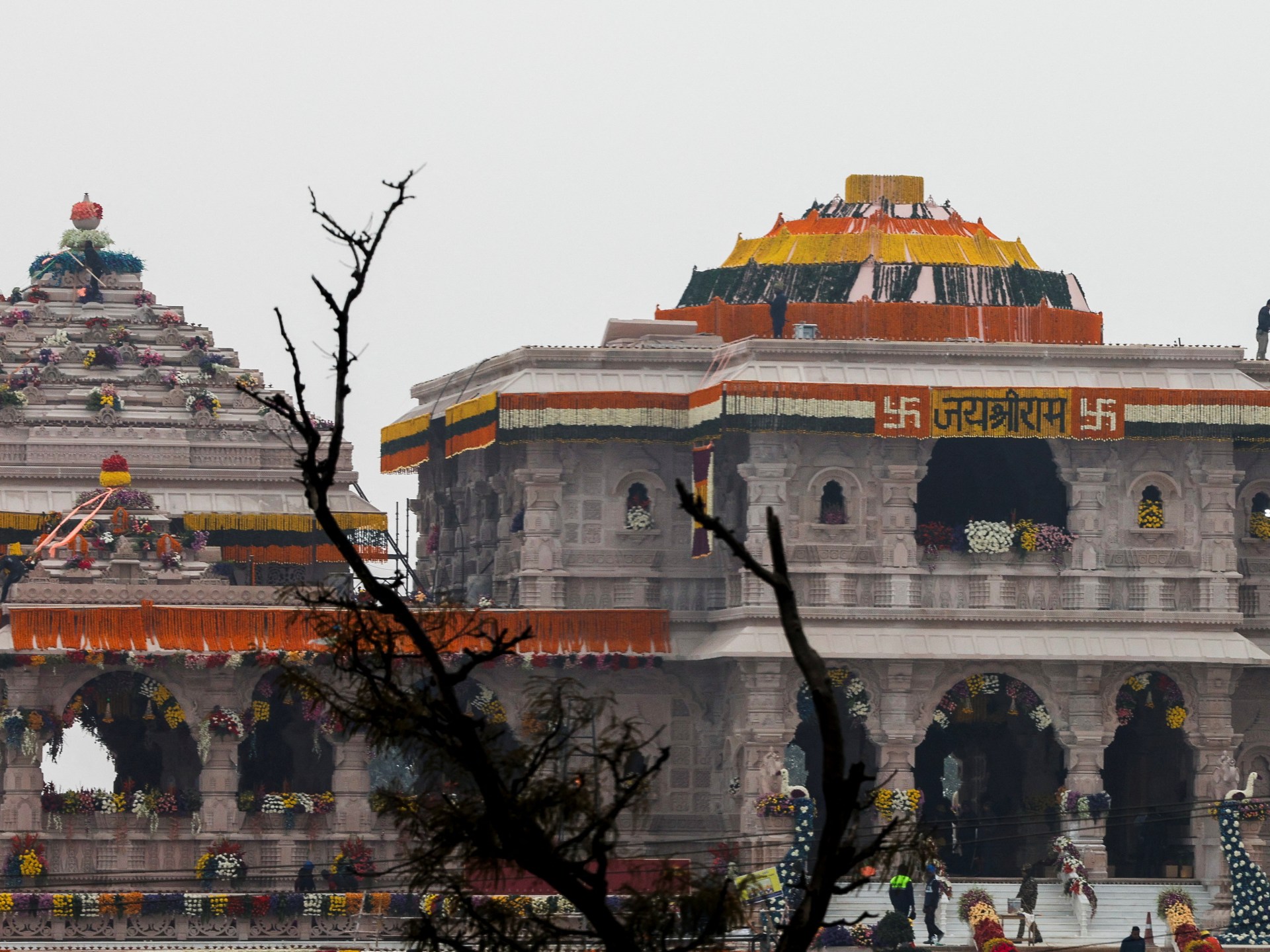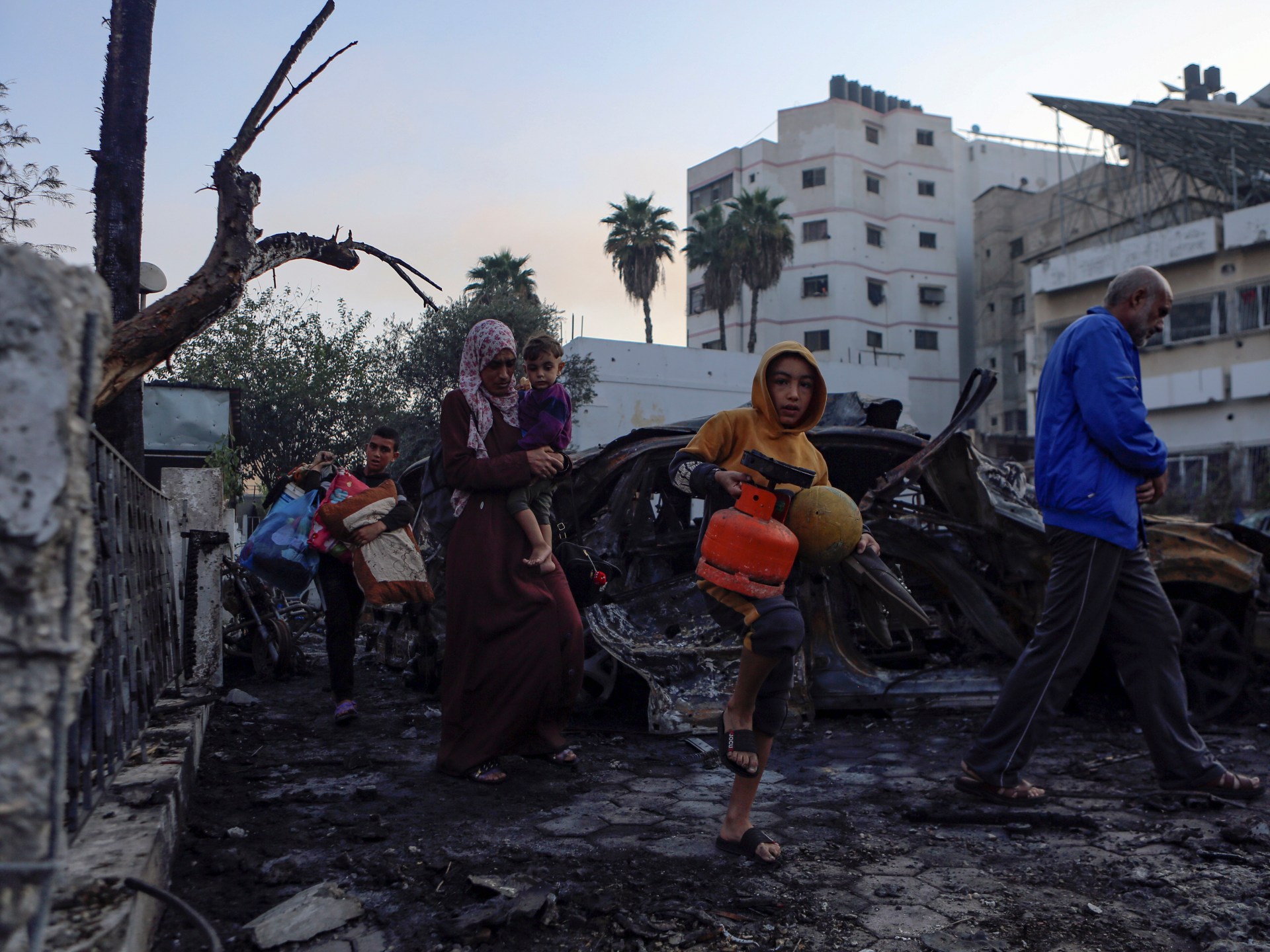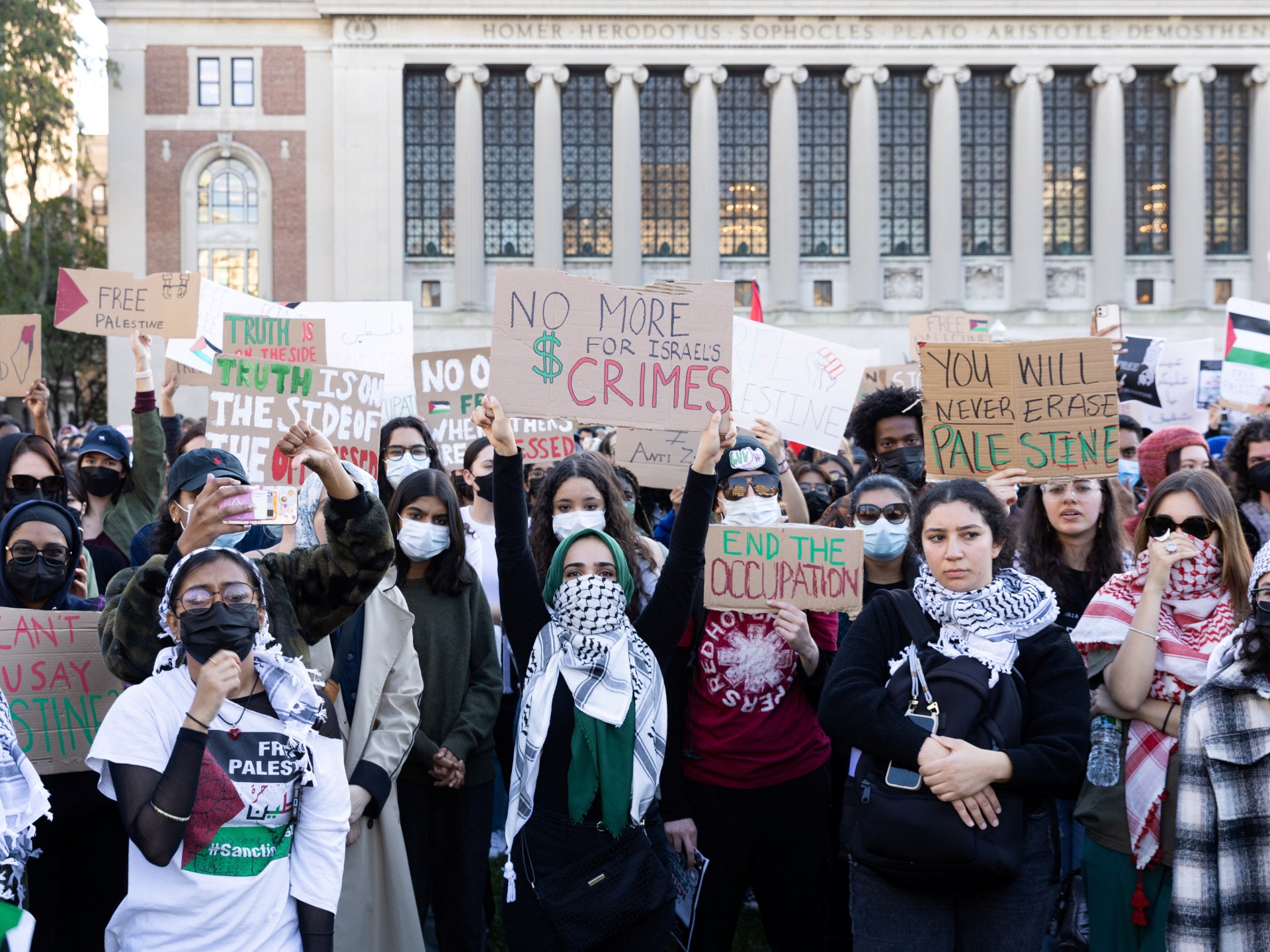
As I flip through the radio channels on the drive to a meeting, I notice that four of the nine presets are playing triumphant tunes celebrating this upcoming inauguration of the Ram temple in Ayodhya. As I turn onto the road that connects Delhi and Gurgaon, I am confronted with an overwhelming explosion of saffron.
Illegal squatters, who have long taken over the pavements on this stretch of road, are now becoming involved in the saffron flag trade. Oversized posters depicting a muscular ram with a bow and arrow dominate the streets. Street vendors are happy to offer smaller versions of the flag with Ram’s face.
Swords, paintings of deities and cutouts of Ram adorn every street corner. I greet the housing society security guard with a nod, he responds with a delighted “Jai Shri Ram” (Glory to Lord Rama). The atmosphere is more reminiscent of a religious carnival than a normal day of business in the city.
From an enthusiastic WhatsApp message from an eager uncle in our housing society, I learn that cinema chain INOX and TV channel Aaj Tak have joined hands to broadcast the triumphant inauguration of Ram Mandir live in 160 cinemas and more than 70 cities in India. Free popcorn is offered.
My messaging app informs me that the Chairman of the Bar Council of India has asked the Chief Justice of India to declare a holiday in the Supreme Court and High Courts as a gesture “to recognize the cultural and national significance of the event.” . I continued reading a bizarre news Article about flight attendants of an Indigo flight dressed as Ram, Lakshman, Sita and Hanuman greeting passengers at the gate. Apparently a Lord Ram read out the boarding announcement.
One has to wonder what truly devout Hindus think about their beloved gods being reduced to a collection of cheap costumes in an airport, or about such blatant politicization of religion that has little to do with true devotion.
As an Indian Muslim who grew up in the 1990s, this all just seems bizarre to me. In my view, the importance of a temple – or even a mosque – lies in matters of personal faith and worship and should not be transformed into a political symbol of national pride in a secular country.
The supposed “cultural significance” of the Ram Temple seems to be drowning in the murky waters of polarization we are currently navigating. Secularism, once a proud virtue that every politician has embraced and safely integrated into their political repertoire, seems to be buried so deeply beneath the mountains of saffron communalism that I fear it may never be recovered.
Never has my generation witnessed such a complete capitulation of the state to religion or such complete invisibility of the Indian Muslim – as evidenced by the fact that today, for the first time in the history of independent India, India has no Muslim Prime Ministers, Cabinet Ministers, etc. has MPs from the ruling party.
In a simpler time, the mere act of a sitting prime minister inaugurating a temple in secular India would have been considered inappropriate and inappropriate.
What’s also missing is an acknowledgment of the bloody past that led to this moment. For India’s Muslims, these celebrations are painful evidence of majoritarianism and polarization.
The Demolition of Babri Mosque is still a collective reminder of grief and loss. Many of us remember the victims of the riots that followed the destruction. Despite political promises, the mosque was never restored and now a large temple is to be built over its ruins – a monument to Hindu supremacy.
While surfing Twitter in the morning, I read a tweet from a Muslim influencer urging Muslims in India to exercise restraint. Stay calm, stay at home and do not be provoked by the offensive messages and images that you are sure to encounter. As expected, the tweet was followed by a barrage of exactly the offensive messages they had warned about.
Some of those living abroad have decided to cancel their annual visits to India due to fears of possible violence. Others living in Ayodhya talk about moving their loved ones out of the city for some time. Weddings have been postponed or downsized. There was an eerie silence in mosques on Friday as local Muslims preferred to pray in their homes.
Nevertheless, the media channels are rushing to report that the majority of Muslims are “happy” and “emotional” about the construction of the temple.
As Indian journalist Betwa Sharma Put it: “If you celebrate while someone else is in pain, something is broken in our society.” And yet peace is the most precious commodity that we desperately hold on to. When something is too painful to bear, you just wait for it to pass and hope for some sort of closure. The Indian Muslim has gotten used to it.
The winter was long and intimidating.
The views expressed in this article are the author’s own and do not necessarily reflect the editorial stance of Al Jazeera.






Recent Comments